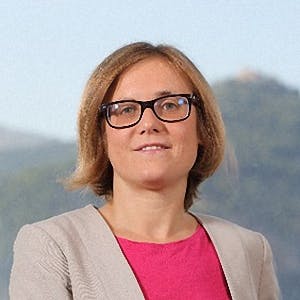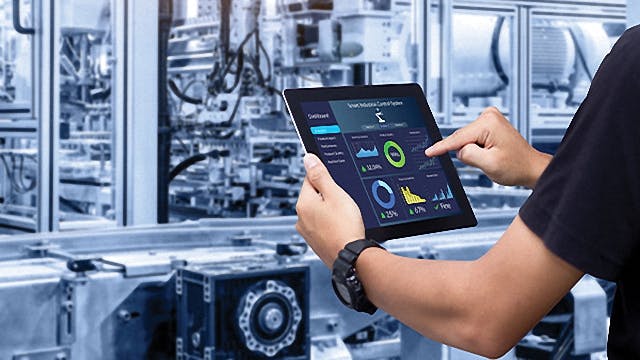Parts manufacturers are being asked to produce highly customized products in smaller batches within shorter time frames, making it difficult to stay cost-competitive and turn a profit.
Forward-thinking machine shops are looking for new ways to move faster, reduce machine downtime, and eliminate data inconsistencies that slow entire processes down.
Digital solutions like Synchronized Part Production from Siemens helps companies accomplish this.
Watch this on-demand webinar and find out how parts manufacturers are improving part quality with digital 3D models, getting to market faster with intelligent planning tools and realizing greater customization to meet customer requirements.
Automating more manufacturing processes
Watch this on-demand webinar and discover how a synchronized part production approach provides:
- End-to-end orchestration of integrated engineering, manufacturing, and quality processes
- Operators’ guidance for process reinforcement and production governance
- Quality integrated into engineering processes and change management
- Real-time deviations management supporting continuous improvement processes and decision-making
The benefits of synchronized part production
Parts manufacturers and machine shops need innovative, cloud-based solutions to eliminate errors, reduce rework, save time and improve manufacturing process efficiency.
Synchronized part production automates planning, improves control and traceability, positively impacting product and process quality, and optimizes scheduling so organizations can consistently deliver high-precision parts.
Fully merge digital and physical processes with synchronized part production and notice a reduction in cycle time, improvements in productivity, and a reduction in raw material inventory.
À propos des intervenants

Paolo Mattis
Responsable de la fabrication discrète
Paolo Mattis est responsable de solutions spécialisé dans les processus d'automatisation des machines industrielles, la logistique et les exigences logicielles.
Paolo a pour objectif d'aider les fabricants à développer des produits de la plus haute qualité, rapidement et de manière rentable, en utilisant des outils de gestion des opérations de fabrication riches en informations.

Valentina Giovanna Lupo
Industry Manager for Discrete Manufacturing
Valentina is an industry manager for Siemens Digital Industries Software, with a focus on quality. She started her journey at Siemens three years ago in the business enablement team of manufacturing operations management. Before joining Siemens, she held different positions in quality management and R&D, both in Italy and Poland. She also covered project management positions, as a “Certified Project Management Associate – IPMA Level D®️”.

Giulia Piovano
Industry Manager for Complex Manufacturing
Giulia Piovano is a solution manager supporting the industrial machinery industry. Based in Genova, Italy, Giulia contributes to the advancement of manufacturing operations management and helps businesses embrace digitalization. Giulia holds a doctorate from the University of Genoa.

Ian Walls
Portfolio Development Executive
Ian Walls is a Portfolio Development Executive (PfD) supporting the industrial machinery industry. His primary focus area is digital manufacturing, specifically manufacturing process planning; plant design, simulation and optimization, CAM, and Additive Manufacturing. In the 28 years Ian has been with Siemens, he has managed sales, presales, services delivery, training and support for a broad range of global industries.
